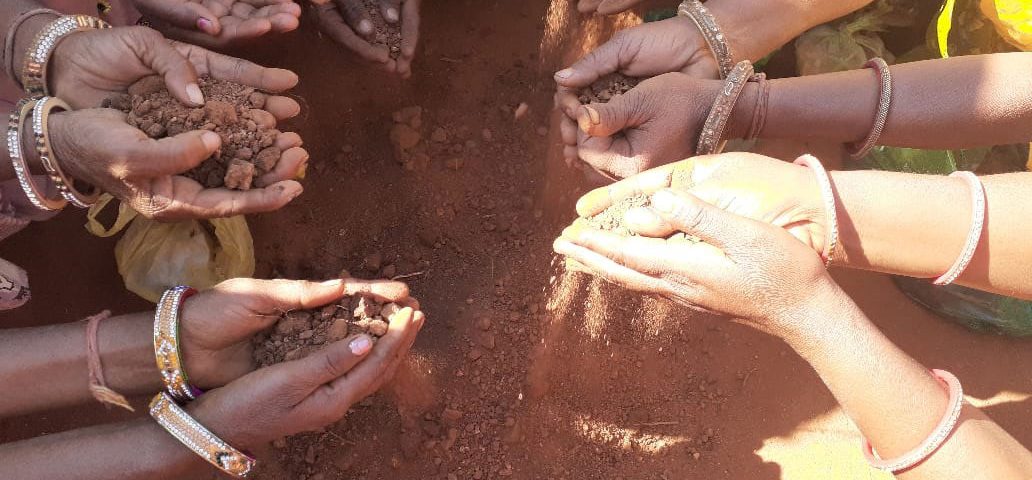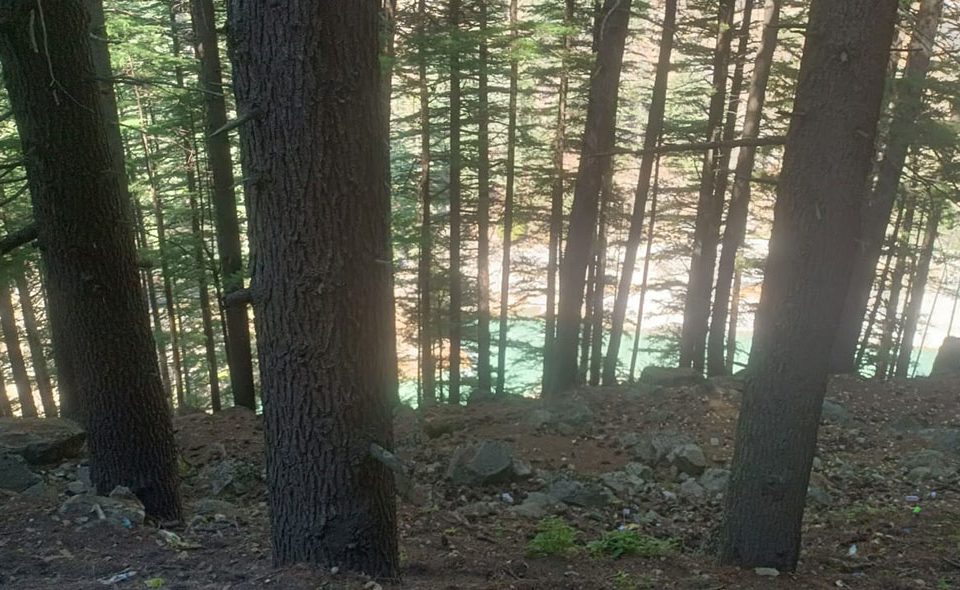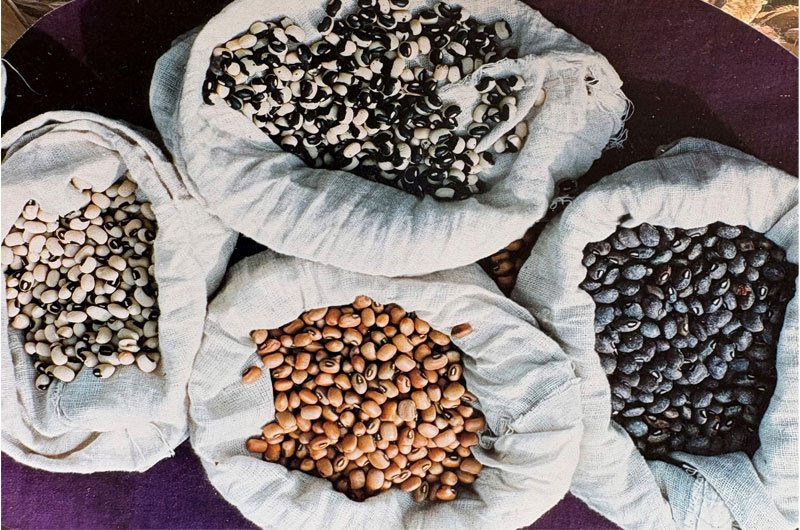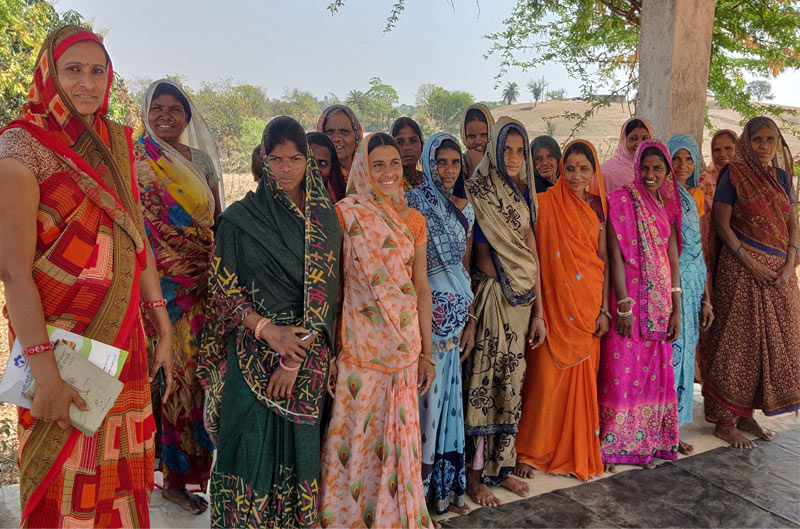World Soil Day: “Soil and water are the sources of life”

Beej Swaraj- Standard procedure for traditional wheat cultivation
November 28, 2023
World Soil Day Celebrated in 1041 Villages
December 6, 2023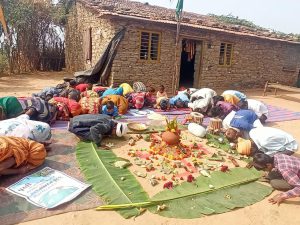 Every year, World Soil Day is celebrated worldwide on the 5th of December. The theme of this year's event is "Soil and water are the source of life". This day is an important occasion for us to understand the importance of soil ourselves and to explain it to others. Soil is an important part of our planet and its protection is of utmost importance to mankind.
Every year, World Soil Day is celebrated worldwide on the 5th of December. The theme of this year's event is "Soil and water are the source of life". This day is an important occasion for us to understand the importance of soil ourselves and to explain it to others. Soil is an important part of our planet and its protection is of utmost importance to mankind.
In this article, we will look at the meaning, issues, problems, and solutions of World Soil Day.
Significance of soil: Soil is an integral part of our earth that is extremely important for life. Soil is a life-sustaining source for wildlife, plants, and humans. It contains a variety of nutrients that are essential for plant growth and the balance of nature and plays an important role in water flow, environmental balance, and climate change. In recent years, many soil-related problems have arisen for various reasons. Soil quality is declining due to population growth, inappropriate farming techniques and unethical utilisation. Humans are exploiting this invaluable heritage of nature, which is not only reducing the fertility of the soil but also causing environmental problems such as various disasters like climate change, excessive rainfall, and drought. Soil and water are the medium in which plants grow and obtain essential nutrients. Healthy soil plays an important role as a natural filter that cleans and stores the water that enters the soil. In rain-fed agricultural systems, 80 per cent of crops are grown on land, accounting for 60 per cent of global food production. These systems rely heavily on effective soil moisture management practices.
Integrated soil and water management practices provide essential ecosystem services, as soils support life on earth and increase ecosystem resilience. Healthy soils act as carbon sinks by sequestering carbon from the atmosphere, contributing to both climate change adaptation and mitigation.
Uses of Soil: Soil is used in agriculture, industry, and wildlife conservation. Proper soil utilisation helps to maintain soil fertility, reduce pollution, and promote water circulation. It is necessary to protect and properly manage the soil so that it can provide us with the best products and preserve the diversity of food.
Actions to preserve life on earth: Soil and water are both vital resources and form the basis for food production, the ecosystem and human well-being. Recognising their invaluable role, it is our responsibility to conserve and manage these resources - soil and water - for future generations.
- Prevent soil erosion: Soil erosion impairs the soil's ability to store, drain and purify water. Increases the risk of flooding, landslides and sand or dust storms.
- Stop illegal mining and construction: Due to quarries, mineral mines and various construction works, land use is changing, leading to loss of biodiversity. This must therefore be stopped.
- Improve soil and water management: Better soil and water management improves the country's ability to withstand extreme climate events such as drought, floods, and sand/dust storms.

- Improve soil protection awareness: It is necessary to make people aware of the importance of soil. There is a need to spread knowledge about how soil is degraded by unsystematic land use and how it can be saved.
- Improve the agricultural system: By reducing the use of unsuitable agricultural techniques and applying appropriate soil and water conservation techniques, both soil and water can be conserved.
- Adapt soil conservation programmes: Governments and public organisations/communities should introduce and implement various soil conservation methods such as mounding in fields, tree planting, etc.
- Promote biodiversity: Measures should be taken to preserve biodiversity through the protection of wildlife, the conservation and development of various plant species, the development of forests, etc.
- Educate and motivate: Educational programmes and motivational sessions should be organised with the aim of making people aware of soil and water conservation.
Expectations of the community:
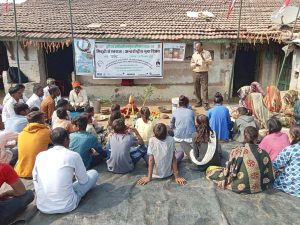 This year, World Soil Day is being organised by Vaagdhara in collaboration with local organisations in 1041 villages in the Triveni Sangam in the states of Rajasthan, Madhya Pradesh and Gujarat. Therefore, it is a day for all organisations and community members. Everyone should understand the importance of soil to inspire others in the community to protect the soil as well. All people in the community should revere the soil and water in their village, discuss various soil and water conservation measures and take an oath to implement them.
This year, World Soil Day is being organised by Vaagdhara in collaboration with local organisations in 1041 villages in the Triveni Sangam in the states of Rajasthan, Madhya Pradesh and Gujarat. Therefore, it is a day for all organisations and community members. Everyone should understand the importance of soil to inspire others in the community to protect the soil as well. All people in the community should revere the soil and water in their village, discuss various soil and water conservation measures and take an oath to implement them.
Demand measures with the involvement of local public representatives and Gram Panchayats for soil and water conservation structures at the village level through an employment guarantee program. Plant trees in large numbers and promote the production of local crops. Ban the use of chemical fertilizers and pesticides, replace them with organic fertilizers and pesticides, and encourage their use.
On this day, let us collectively pledge to continuously make reasonable efforts to protect the soil of our surrounding areas.
Subscribe to our newsletter!


